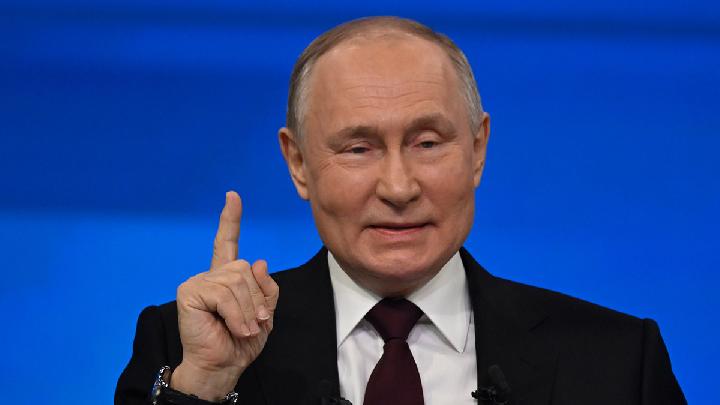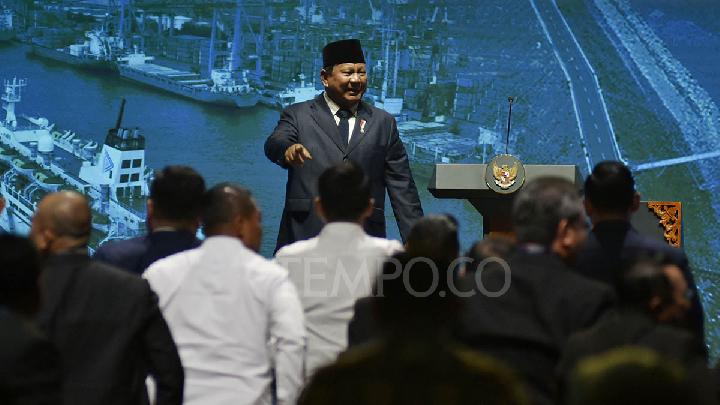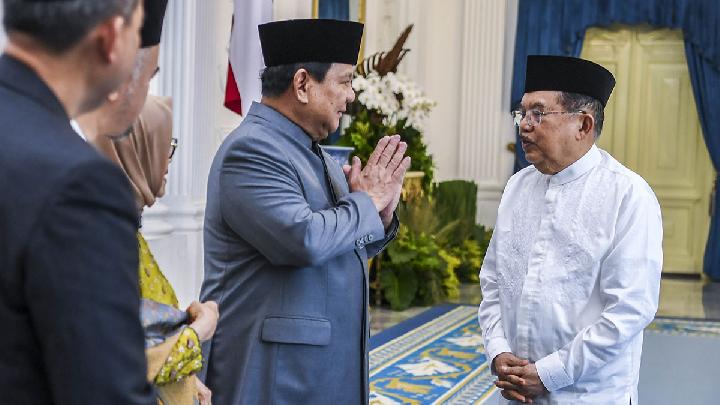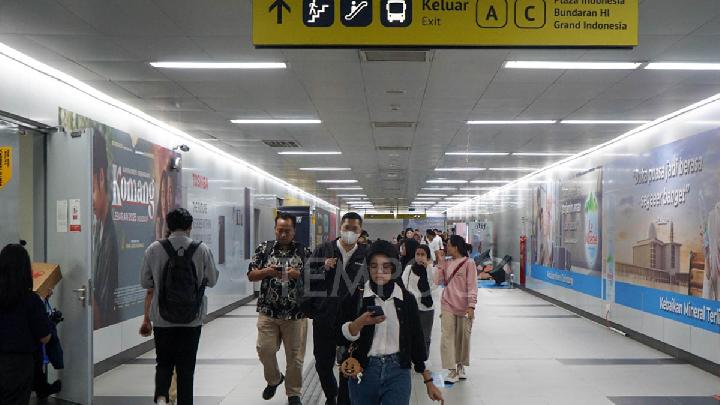
TEMPO.CO, Jakarta - On Friday, 13 June 2025, Israel launched a large-scale surprise airstrike inside Iran, targeting nuclear facilities. According to The Economic Times, 78 people were reported killed, including civilians and several high-ranking Iranian military officials such as the Commander of the Islamic Revolutionary Guard Corps, Hossein Salami, and Chief of Staff Mohammad Baqeri.
More than 320 people were injured in the attack. Israel described the strike as a "preventative" measure, while Iran condemned it as an unjustified act of war.
In response, Iran launched Operation True Promise III, firing a large barrage of missiles and drones at Israel. This was a direct retaliation for the Israeli airstrike on Iran's primary military and nuclear facilities.
Iran’s attack focused on the Kirya complex in downtown Tel Aviv. Known as Israel’s equivalent of the Pentagon, the Kirya serves as the headquarters for the Israel Defense Forces (IDF), the Ministry of Defense, and other key military command and intelligence units.
What is Kirya?
Kirya, also referred to as HaKirya or "The Campus," has been the heart of Israel’s military operations since 1948. The complex houses the IDF General Staff, Camp Rabin, and crucial facilities such as the Marganit Tower and Matcal.
These serve as hubs for strategic planning, intelligence coordination, and operational command. Due to its role, Kirya is considered one of the most secure and vital sites for Israel’s national defense.
During the Iranian strike, at least one missile reportedly landed near the Marganit Tower, which functions as a key communications center within the complex. Although Israeli officials have not confirmed the scale of the damage, smoke was seen rising from the area, and Fox News correspondent Trey Yingst reported live that buildings in the Kirya complex had been hit.
No casualties were reported within Kirya itself. However, nearby civilian areas sustained damage, and at least five people were injured by shrapnel. In defense, the IDF activated several missile interception systems, including the Iron Dome and Arrow.
Despite these countermeasures, at least nine impact sites were reported across Israel. The attacks caused significant damage in the Tel Aviv metropolitan area. Prime Minister Benjamin Netanyahu described the incident as a battle for Israel’s survival and reaffirmed the country’s intent to pursue military action against what he called the Iranian threat.
Why Did Iran Target Kirya?
According to The New Arab, Iran’s decision to strike Kirya was both strategic and symbolic. The attack came only hours after Tehran accused Israel of violating its sovereignty.
Iran’s targeting of Kirya aimed to disrupt Israel’s military command and demonstrate its ability to reach critical defense infrastructure. The strike was designed to send a message both domestically and internationally that Iran would not remain passive in the face of Israeli aggression.
By hitting such a central military hub, Iran sought to display its capabilities and challenge the notion of Israeli deterrence. Supreme Leader Ayatollah Ali Khamenei stated that Israel had initiated an open war, while Iranian state media framed the operation as proof that Israel’s military superiority had been compromised.
Broader Implications
The Israeli government now faces questions about its decision to escalate and the potential security failures that allowed Iranian missiles to strike sensitive sites. Israel’s initial airstrike was not launched in response to an immediate threat but was instead intended to degrade Iran’s strategic capabilities. This action sidestepped diplomatic engagement and directly triggered a major military retaliation.
As Israel vows further responses, international stakeholders including the United States and the European Union have urged restraint.
The attack on Kirya has unsettled public confidence in Israel’s defense systems and highlighted the dangers of direct military confrontation with Iran. The situation remains highly volatile, with the potential for further escalation in the region.
Editor's Choice: UN Condemns Israeli Attack on Iranian Nuclear Site
Click here to get the latest news updates from Tempo on Google News
Broken Promises, Rising Risks: The Collapse of US-Iran Nuclear Talks
1 jam lalu

The US must treat Iran's nuclear programme separately from its regional activities and Iran must pair its calls for sovereignty with transparency.
UN Condemns Israeli Attack on Iranian Nuclear Site
5 jam lalu

The Iranian authorities confirm the impact of the Israeli attack on Natanz enrichment site without affecting the radiation levels.
Pakistan Vows Support for Iran, Urges Muslim Countries to Cut Ties with Israel
5 jam lalu

Pakistan has pledged to support Iran and has called on Muslim nations to unite against Israel.
IDF Headquarters in Tel Aviv Hit by Iranian Missiles
18 jam lalu

The IDF headquarters in Tel Aviv, Israel, is reported to have been heavily damaged by Iranian missile attacks
Macron Says France Will Defend Israel If Iran Retaliates
21 jam lalu

Macron declares support for Israel, but pushes for diplomatic dialogues.
U.S. Quietly Delivers Hundreds of Hellfire Missiles to Israel Before Attack on Tehran
23 jam lalu

Trump is said to have been aware of Israel's plan to attack Iran. Before the attack took place, the U.S. sent missiles to Israel.
Nationwide Internet Disrupted in Iran Following Israeli Strikes
1 hari lalu

The internet network connectivity in Iran was reported to have dropped sharply today, remaining at only 10-20 percent.
Putin Proposes Russia as Mediator in Iran-Israel Conflict
1 hari lalu

President Vladimir Putin has declared Russia's readiness to mediate between Israel and Iran, aiming to prevent further escalation.
Iranian Missiles Strike Tel Aviv; Sirens Wail Across Israel
1 hari lalu

Iran launched a massive retaliatory strike against Israel on Friday, June 13, 2025, firing approximately 100 missiles in two waves of attacks.
Iran Responds to Israeli Strike with 100 Drones After Guard Commander's Death
1 hari lalu

In retaliation, Iran shot down 100 drones and killed a top commander of the Iranian Revolutionary Guard.































:strip_icc():format(jpeg)/kly-media-production/medias/3977835/original/066021800_1648524608-pexels-ahmed-aqtai-2233416_1_.jpg)
:strip_icc():format(jpeg)/kly-media-production/medias/3449231/original/035609000_1620241432-000_99C2L3.jpg)
:strip_icc():format(jpeg)/kly-media-production/medias/4779768/original/056174500_1711004488-hands-holding-knife-fork-alarm-clock-plate-blue-background.jpg)
:strip_icc():format(jpeg)/kly-media-production/medias/4678420/original/041411600_1701993066-pexels-thirdman-8489077.jpg)
:strip_icc():format(jpeg)/kly-media-production/medias/5134530/original/076641900_1739622826-20250215-Prabowo-AFP_7.jpg)
:strip_icc():format(jpeg)/kly-media-production/medias/3626995/original/056226000_1636431538-252444828_305857281141144_6357930935168472204_n.jpg)
:strip_icc():format(jpeg)/kly-media-production/medias/1619105/original/061499300_1496997418-ramadan-main.jpg)
:strip_icc():format(jpeg)/kly-media-production/medias/3508689/original/070798000_1626139545-20210713-Elon-Musk-SolarCity-5.jpg)
:strip_icc():format(jpeg)/kly-media-production/medias/4769102/original/014075000_1710171937-20240311-Taraweh_Pertama_di_Istiqlal-ANG_1.jpg)
:strip_icc():format(jpeg)/kly-media-production/medias/5106410/original/089112900_1737608852-Buya_Yahya.jpg)
:strip_icc():format(jpeg):watermark(kly-media-production/assets/images/watermarks/liputan6/watermark-color-landscape-new.png,1100,20,0)/kly-media-production/medias/5140628/original/019242500_1740225866-Persita_Tangerang_vs_Borneo_FC-35.jpg)
:strip_icc():format(jpeg)/kly-media-production/medias/3902213/original/084057500_1642045386-pexels-ralph-w-lambrecht-1446076__1_.jpg)
:strip_icc():format(jpeg)/kly-media-production/medias/4878826/original/064720000_1719661833-WhatsApp_Image_2024-06-28_at_23.09.07.jpeg)
:strip_icc():format(jpeg)/kly-media-production/medias/5141412/original/005545700_1740364919-Snapinsta.app_481203089_18446336839077229_3957692586101845976_n_1080.jpg)
:strip_icc():format(jpeg)/kly-media-production/medias/771429/original/006248600_1416892825-m2.jpg)
:strip_icc():format(jpeg)/kly-media-production/medias/2265569/original/050855900_1530514161-20180702-Harga-Pertamax-Naik-di-Semua-Daerah--TALLO-4.jpg)
:strip_icc():format(jpeg)/kly-media-production/medias/2240997/original/070157500_1528277766-arches-architecture-building-460680.jpg)
:strip_icc():format(jpeg)/kly-media-production/medias/4787912/original/016408900_1711630423-20240328-Penukaran_Uang-AFP_6.jpg)
:strip_icc():format(jpeg)/kly-media-production/medias/5139103/original/083951400_1740056485-Screenshot_20250220_192744_Instagram.jpg)
:strip_icc():format(jpeg)/kly-media-production/medias/4290349/original/045313100_1673596178-cek_fakta_kemensos_dana.jpg)